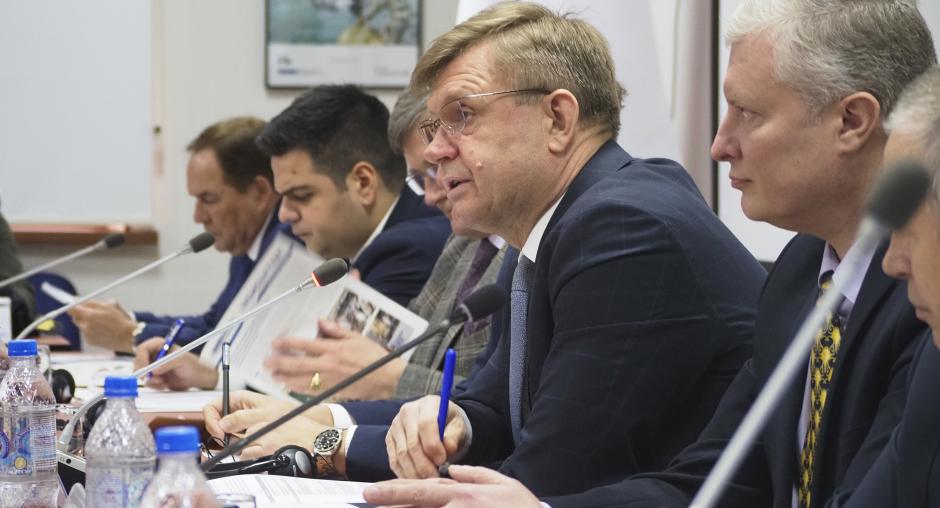Roundtable discussion on Border Security and Management in the wake of the later developments in Afghanistan at OSCE Border Management Staff College

The OSCE’s Border Management Staff College (BMSC) held a roundtable discussion on 19 November 2021 to examine the security and humanitarian situation in Afghanistan and the current and potential threats it poses to the Central Asian Region and beyond.
The event, held in a blended format, brought together more than sixty participants, representing government agencies, civil society, diplomatic missions, international organizations, experts, and mid-to-senior level officers of the 30th Staff Course from Azerbaijan, Belarus, Bulgaria, Jordan, Kazakhstan, Moldova, Mongolia, North Macedonia, Portugal, Tajikistan, Thailand, Tunisia, and Turkey.
In his opening remarks, Valeriu Chiveri, Head of the OSCE Programme Office in Dushanbe (POiD), stressed the timeliness of the discussions on increasing border security and management in the light of developments in Afghanistan. Valeriu Chiveri also named the projects of the OSCE POiD aimed at strengthening border control, capacity-building, management, and surveillance including unified budget project “Border Security Management” and extra-budgetary projects “Stabilization of Tajikistan's southern border region with Afghanistan”, “Patrol Field Capacity Building of the Tajik Border Troops through promotion of Regional Co-operation” and “Border Management Staff College”.
The roundtable event provided a platform to exchange views on strengthening national, regional, and international border security co-operation on identifying, combating, and mitigating possible cross-border threats, including illegal crossings, illicit drug and arms trafficking, the export of violent extremism, and the threat of terrorism. In parallel, emphasis was put on the protection of the rights of refugees and respect for the principle of non-refoulment and implementation of national referral mechanisms.
Ihar Kuzminich, Acting Director of the BMSC, highlighted that the BMSC regularly organizes roundtable discussions on the most pressing topics about threats to borders security and management (BSM) and this event was the last in a series of three roundtable discussions on the issue.
Keynote speaker Mulugeta Zewdie, Representative of the United Nations High Commissioner for Refugees (UNHCR) in Tajikistan, noted that borders are porous, but with proper co-ordination and a system, the large influx of refugees can be monitored and addressed. Zewdie also mentioned key commitments concerning the Afghan refugee situation in Tajikistan, which included a joint action plan, development of temporary accommodation, and identification of border crossing points.
Other contributors to the discussions included Kevin Allen, Principal Liaison Advisor at UNHCR, Mona Koehler-Schindler, Associate Human Rights Officer, Anti-Terrorism Issues at the OSCE Office for Democratic Institutions and Human Rights, Stefan Wolff, Professor of International Security at the University of Birmingham, Luka Buhin, Project Support Officer at the OSCE Conflict Prevention Centre, Forum for Security Cooperation Support Unit and Dennis Cosgrove, Head of Border Security and Management Unit of the OSCE Transnational Threats Department.
